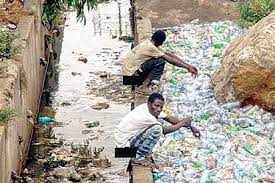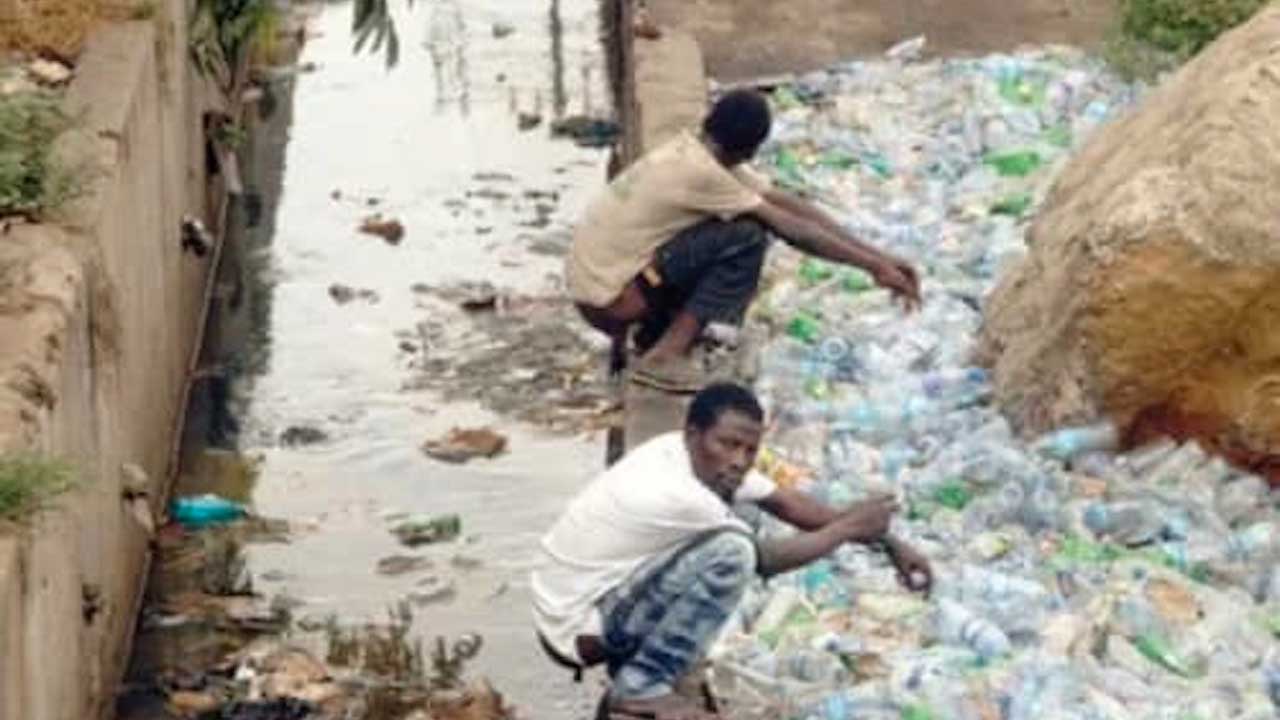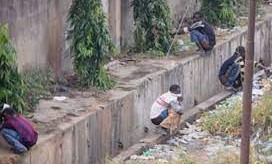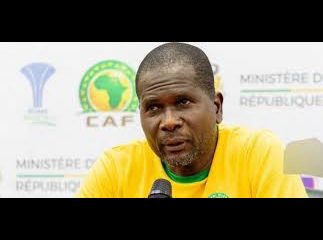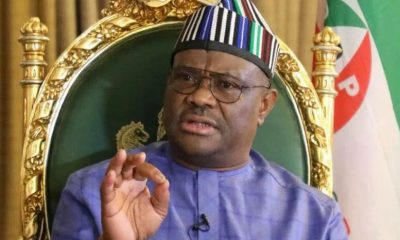COVER
Assessing Nigeria’s Drive towards an Open Defecation-free Nation
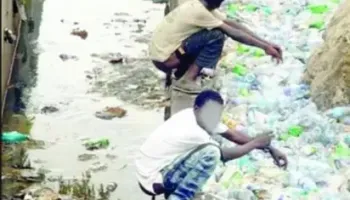
By Tosin Kolade
In Ungwar Mallam, a community in Dugabau Ward, Kabo Local Government in Kano State, by-laws exist which prescribe payment of fine for anyone found publicly defecating.
This has made it possible for defaulters paying N5,000 fine as a deterrent for others.
On a visit to the community, one would observe the presence of Water, Sanitation and Hygiene Committee (WASHCOM) members.
They have been trained as hygiene ambassadors, to carry out sustainable hygiene practices in many communities.
From encouraging community members to build and use their toilets, to monitoring usage, this has reduced the previous practice of open defecation.
In Maikalwa Yanma, a community under Nai’bawa ward, Kumbotso LGA, Hayatuddin Safiyo said since the introduction of the UNICEF-supported Water, Sanitation and Hygiene (WASH) programme, many communities have imbibed hygiene practices.
Safiyo said such practices included the introduction of innovations to manage water and food contamination through feaces, proper waste disposals and covering toilets with tightly-fitted drop hole covers.
This, he said, has been reflected with low records of preventable diseases and deaths, especially among under-five children.
Safiyo says communities now practice safety and hygiene by avoiding excreta contamination of water sources and adhering to the rule.
“There is a very big impact, let us take the previous year. In the previous year, there was not much rainfall, and the high rate of sickness was pronounced.
“In comparison with this year, the rainfall is high, much rainfall, but the rate of sickness is very low, considering the sensitisation, the knowledge of the hygiene programme,” he said.
Data from UNICEF showed that Nigeria was among the nations in the world with the highest number of people practising open defecation, estimated at over 47 million.
The practice has had a negative effect on the populace, especially children, in the areas of health and education and has contributed to the country’s failure to meet the MDG target.
The sanitation situation in the country prompted the National Council on Water Resources in 2014 to prioritize the development of a roadmap towards eliminating open defecation in the country, in line with the United Nations global campaign for ending open defecation.
This initiative tagged “Making Nigeria Open Defecation Free by 2025: A National Roadmap” was developed by the Federal Ministry of Water Resources with invaluable support from UNICEF and other key sector players across Nigeria.
In 2016, the National Council on Water Resources endorsed this road map as a means to eliminate open defecation in Nigeria.
The road map provides a guide towards achieving an open defecation free country using different approaches such as capacity development and promotion of improved technology options through sanitation marketing.
It stipulates the provision of sanitation facilities in public places; Community -Led Total Sanitation; promotional and media campaigns; creating enabling environment and coordination mechanism.
At the same time, many states have keyed into this road map with many activities to promote the building and using of toilets towards ending open defecation.
For this reason, the Director, FCT Rural Water Supply and Sanitation Agency (RUWASSA), Dr. Mohammed Dan-Hassan, said it was constructing 10,000 public toilets in strategic locations across the territory.
Dan-Hassan noted that this became necessary following President Muhammadu Buhari’s declaration of a state of emergency on open defecation in the 36 states of the Federation including the FCT.
He explained that in actualisation of the president’s directives, the construction of the toilets was one of the road maps to end open defecation in the territory by 2025.
The RUWASSA head sadly noted that with the 300 approved contractors, only 10 toilets had been built so far, with work ongoing at 65 other sites.
Dan-Hassan said that RUWASSA has a target of 2023 to eradicate open defecation in the FCT, saying lack of cooperation among relevant agencies like schools and medical facilities are its challenges.
However, many programmes have been introduced to make this national target a reality with the signing of the Executive Order 009 by President Buhari and the formation of the Clean Nigeria: Use the Toilet Campaign Secretariat.
Also, with the recent right given to Nigeria to host the 2022 World Toilet Summit in November, many are of the opinion that this would give the country the needed traction towards overcoming its sanitation challenges.
Mr Jack Sim, Founder of the World Toilet Organisation (WTO), while making the announcement, said the summit would be a great opportunity to showcase the extensive efforts of the Federal Government of Nigeria and also to drive the intended change.
Mrs Caterina De Albuquerque, Chief Executive Officer, Sanitation and Water for All (SWA), pointed out that sanitation was at one time not discussed and almost forgotten globally.
De Albuquerque applauded the leadership of Nigeria, for prioritising Water, Sanitation and Hygiene, adding that Nigeria’s example would inspire other African countries to follow suit.
“I applaud the decision to choose Nigeria as a host country for this important summit. Their focus on water and sanitation issues has been exemplary, with strong displays of political will at the highest levels of government.
“While progress has been hampered by COVID-19, their resolve to tackle open defecation, improve hygiene and provide access to clean drinking water is inspirational to other countries across the continent,” she said.
Dr Nicholas Igwe, National Coordinator, Organised Private Sector in Water, Sanitation and Hygiene, said that the choice of Nigeria for the summit was a clear endorsement of the commitment and political will of the Federal Government towards Water, Sanitation and Hygiene delivery in Nigeria.
Igwe indicates that the private sector has a critical role to play in driving the sanitation economy while also facilitating job creation.
He said the organised private sector has partnered with the Nigerians in Diaspora Commission, to mobilize two million Nigerians outside the country to adopt a toilet each for a household.
Igwe said that the measure was a multi -stakeholder approach designed to help the Federal Government put an end to open defecation in the country and also promote a healthy and disease free environment.
“We, the organised private sector in WASH recognize the importance of assisting the government based on the strong political will that has been shown.
“We have gone ahead to partner with the Nigerians in Diaspora Commission to mobilise two million Nigerians outside the country to adopt a toilet each for a household,” he said.
The Minister of Water Resources, Mr Suleiman Adamu, says that the selection of Nigeria as the host country for 2022 World Toilet Summit is a welcome development.
Adamu said that the choice of Nigeria to host the summit is coming at a period when Nigeria has made concrete plans to exit from the comity of nations practising open defecation.
The Minister recalled that the Open Defecation Free (ODF) Campaign was launched in November 2019, and was aimed at mobilising high level political support, resources and the entire populace towards building a new culture of safe sanitation.
He acknowledges that Nigeria needs all necessary support to ensure that the ODF Campaign gains traction with all stakeholders playing their part.
“I am optimistic that the World Toilet Summit will provide a veritable platform for mobilisation of the private sector and other critical stakeholders in addressing the challenge of Open Defecation in the country,” Adamu said.
Nevertheless, some experts say the upcoming summit will give Nigeria the needed push if new sanitation technologies will be introduced in a sustainable and cost-effective manner.
They said having an enabling environment, leadership and coordination is required in achieving a defecation-free target.
They added that working together with communities, civil society, development agencies, private sector and government at sub-national levels is crucial.
COVER
Again, Peter Obi Tackles Tinubu on Fuel Subsidy Removal

By Andrew Oota, Abuja
Labour Party’s presidential candidate in the 2023 elections, Peter Obi, has said he would have removed the fuel subsidy and floated the naira, but in a “More organised and productive” manner.Obi, a former Anambra State governor, distanced himself from what he described as the Tinubu administration’s chaotic approach.
Speaking at an interview on a TV programme, he maintained that while the removal of fuel subsidy was necessary, the execution under President Bola Tinubu lacked foresight, clarity, and transparency, ultimately failing to improve the lives of ordinary Nigerians. “I have consistently maintained that I would have removed the fuel subsidy,” Obi stated. “But I would have done it in an organised way. The way it was handled lacked structure.“Everyone knew the subsidy regime was fraught with corruption, but removing it should have been followed by a clear plan for reinvestment in critical sectors.”Obi said his campaign manifesto included a detailed blueprint for eliminating subsidies while cushioning the effect on vulnerable citizens.He lamented the absence of visible reinvestment from the billions purportedly saved since the subsidy removal.“If we’ve saved all this money, where is it?” he asked. “Where has it been invested? In education? In healthcare? In transport? Nigerians deserve to know.”He also challenged the government’s rationale for floating the naira without addressing the country’s lack of domestic production.“There’s nothing wrong with devaluation or currency floating,” he said. “But you don’t do it in a vacuum. You need to be producing. Devaluation works when your economy is productive — when you have something to export and can attract investment.”According to Obi, the naira’s sharp depreciation without a corresponding increase in exports or local output has worsened inflation and the cost of living.“If your currency weakens and you have nothing to sell, you just make things harder for the people,” he warned.The former presidential hopeful argued that economic decisions, subsidy removal, and currency floatation should have been preceded by nationwide consultations, fiscal discipline, and a transparent national development plan.“You sit with operators and agree on a pricing structure. You map out where the savings will go. That’s how to win public trust,” Obi added. “Countries that have successfully removed subsidies didn’t just announce it overnight. They followed a clear strategy.”Obi’s remarks came at a time when Nigerians are increasingly frustrated with the soaring cost of fuel, food, and essential services.While Tinubu has urged Nigerians to bear the temporary pains with future gains in sight, critics said the government policies were plunging Nigerians into hardship by the day.In a swift response, the Presidency described Obi as a ‘shallow’ personality who is not well grounded in the issues of economics and governance.Special Adviser to the President on Policy Communication, Daniel Bwala, disclosed this in a statement posted via his official X account.While stating that he was surprised Obi could agree with the economic policies of President Bola Tinubu, especially on fuel subsidy removal and the unification of foreign exchange, Bwala emphasised that it was obvious the former Anambra governor and other opposition figures were simply after taking over power, all the while.He wrote, “Is anybody watching Peter Obi on Arise TV?” He agreed with our policy of removal of subsidy and unification of the foreign exchange; he claimed he would have done it better than us in an ‘organised manner’“He was asked what the ‘organised manner ‘ is.’ He played with words, yet to arrive at agreeing with us.“Anybody with a rational mind knows these guys are just looking to grab power, but they don’t have any alternative agenda.“He seems to have very shallow knowledge of economics and governance.“Remember, this is even an interview anchored by a member of his Obidient movement.“That’s why you don’t hear ‘I put it to you’ and no barking like a rottweiler; Yet ‘if it didn’t Dey it didn’t Dey,” Bwala said.COVER
Mokwa Flood: Niger Awards N7bn Road Contract, Commits to Resettle Victims
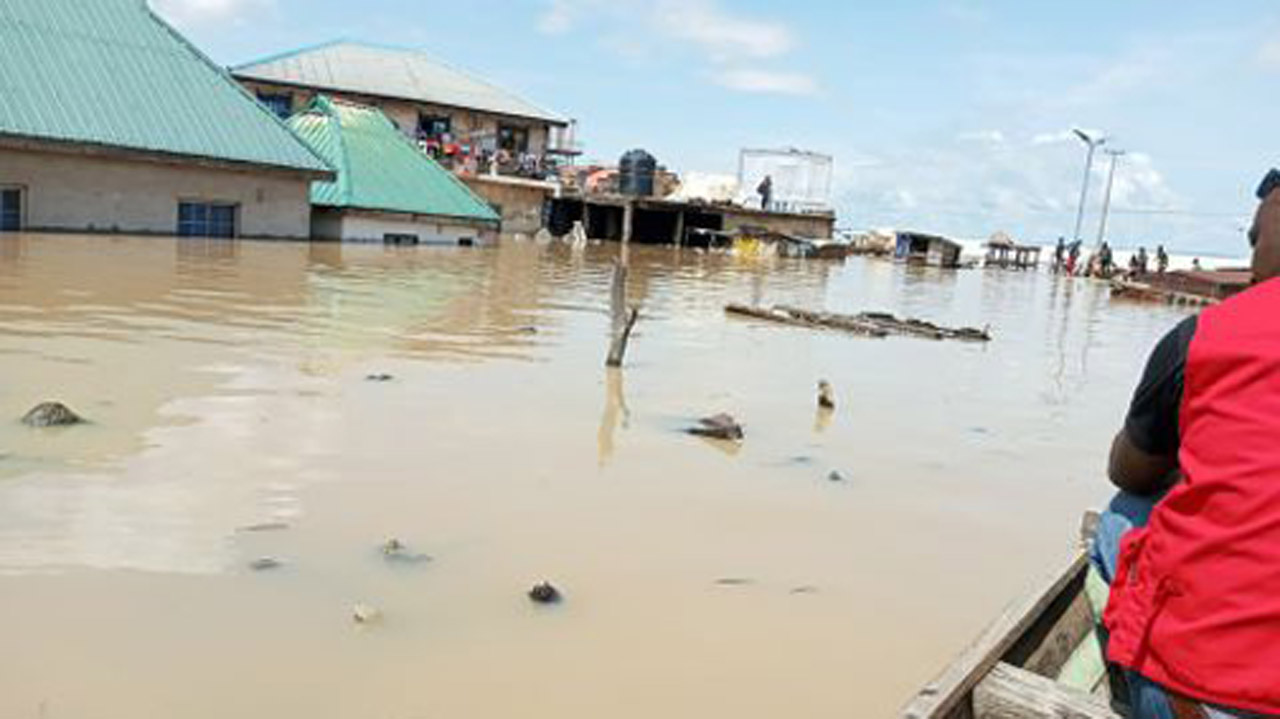
From Dan Amasingha, Minna
The Niger State Government has awarded a N7 billion contract for construction of the Mokwa Raba Road and four bridges.The project aims to improve transportation and enhance connectivity, particularly for communities recently devastated by severe flooding.
Governor Umar Mohammed Bago announced the development during a visit to Tiffin Madza Primary School, where internally displaced persons (IDPs) are currently taking refuge. The Governor who returned back to the Country on Sunday night after performing this year’s hajj, emphasized the need for the people to stay clear of waterways so as to protect the loss of life and properties.He reaffirmed the state’s commitment to rebuilding affected communities and restoring hope to displaced families.As part of the government’s immediate response, the governor announced a 1 billion donation to fast-track the resettlement of those displaced by the disaster, which, according to the Niger State Emergency Management Agency (NSEMA), claimed over 200 lives and left more than 80 others injured.Bago also revealed that the state government has directed the Ministry of Lands to issue a Certificate of Occupancy to the Federal Government to facilitate the resettlement process.He noted that land has already been secured for the construction of permanent housing, which will include essential infrastructure such as health facilities, schools, and proper drainage systems with culverts to mitigate future flooding.The Governor added that the current IDP camp would remain in operation until the end of the month, saying, ” each affected family will receive financial support to cover rent while awaiting the completion of their new homes.“Additionally, 50 trucks of grains have been allocated for distribution to flood-affected families.“We cannot replace everything you have lost, but we are here to support you in every way we can.”He urged the people of Mokwa to set aside their differences and work together to rebuild their communities.He also called on Islamic school teachers to keep proper records of children under their care, particularly in times of emergency.Bago commended the Federal Government for its swift intervention and lauded the National Emergency Management Agency (NEMA) for its timely response.Providing an update on the disaster, Acting Director General of NSEMA, Dr. Hussain Audu Ibrahim, confirmed that 206 lives were lost, 82 people sustained injuries, and numerous homes were destroyed.He noted that several government agencies, NGOs, and elected officials have contributed donations and relief materials to aid recovery efforts.Bago was accompanied by the Deputy Governor, Comrade Yakubu Garba, Speaker of the State House of Assembly, Rt.Hon. Abdulmalik Sarkindaji, traditional rulers, including the Etsu Nupe, Emir of Agaie, and Emir of Borgu, members of the State Executive Council, and the Chairman of Mokwa Local Government, Abdullahi Jibrin Muregi.The delegation visited affected areas in Mokwa and Raba to sympathise with residents and advised communities to stay away from the riverbanks to avoid further casualties.Governor Bago offered prayers for the departed, stating, “Allah has destined everything, and He will comfort the people during this difficult time.”COVER
SEC Warns against Investing in Punisher Coin

The Securities and Exchange Commission (SEC) has cautioned Nigerians against investing in a cryptocurrency called Punisher Coin, also known by the symbol $PUN.In a statement issued Sunday in Lagos, SEC said the presale was unauthorised and lacked regulatory approval, resembling a Ponzi scheme.
According to the statement, the promoters of $PUN are not registered to operate in any capacity within Nigeria’s capital market. The Commission said: “Our attention has been drawn to online promotions of an unauthorised presale for a cryptocurrency called Punisher Coin, also known as $PUN. “Of particular concern is an article by Daily Trust E-Paper titled: ‘Cryptos to Buy: Why Punisher Coin Could Join Avalanche and Chainlink.’”SEC clarified that Punisher Coin and its promoters are neither registered nor approved to promote, launch, trade, or solicit investment from the Nigerian public.Preliminary investigations indicate Punisher Coin is a ‘meme coin’ — a type of digital asset often lacking tangible utility or a supporting project.Further findings confirm $PUN is indeed a meme coin, typically without real-world value, purpose, or technical foundation backing its existence.The value of such coins is usually driven by hype, social media trends, or promotional efforts by its creators and community.This makes them vulnerable to ‘pump and dump’ schemes — fraudulent tactics used to inflate and then crash a coin’s market price.In such schemes, promoters spread false hype, creating buying pressure, then sell off their holdings at the peak, leaving others with losses.After the promoters sell and stop hyping, the coin’s value usually plummets, causing unsuspecting investors to lose money rapidly.SEC noted these coins’ value is largely based on manipulation, not substance, with price swings driven by excitement and misleading claims.The public is therefore strongly warned against participating in the presale of Punisher Coin, as any investment is entirely at one’s own risk.The Commission urges investors to verify the legitimacy of any digital asset, its promoters, and platforms before committing funds.Verification can be done via SEC’s official portal: https://home.sec.gov.ng/fintech-and-innovation-hub-finport/registered-fintech-operators.(NAN)


